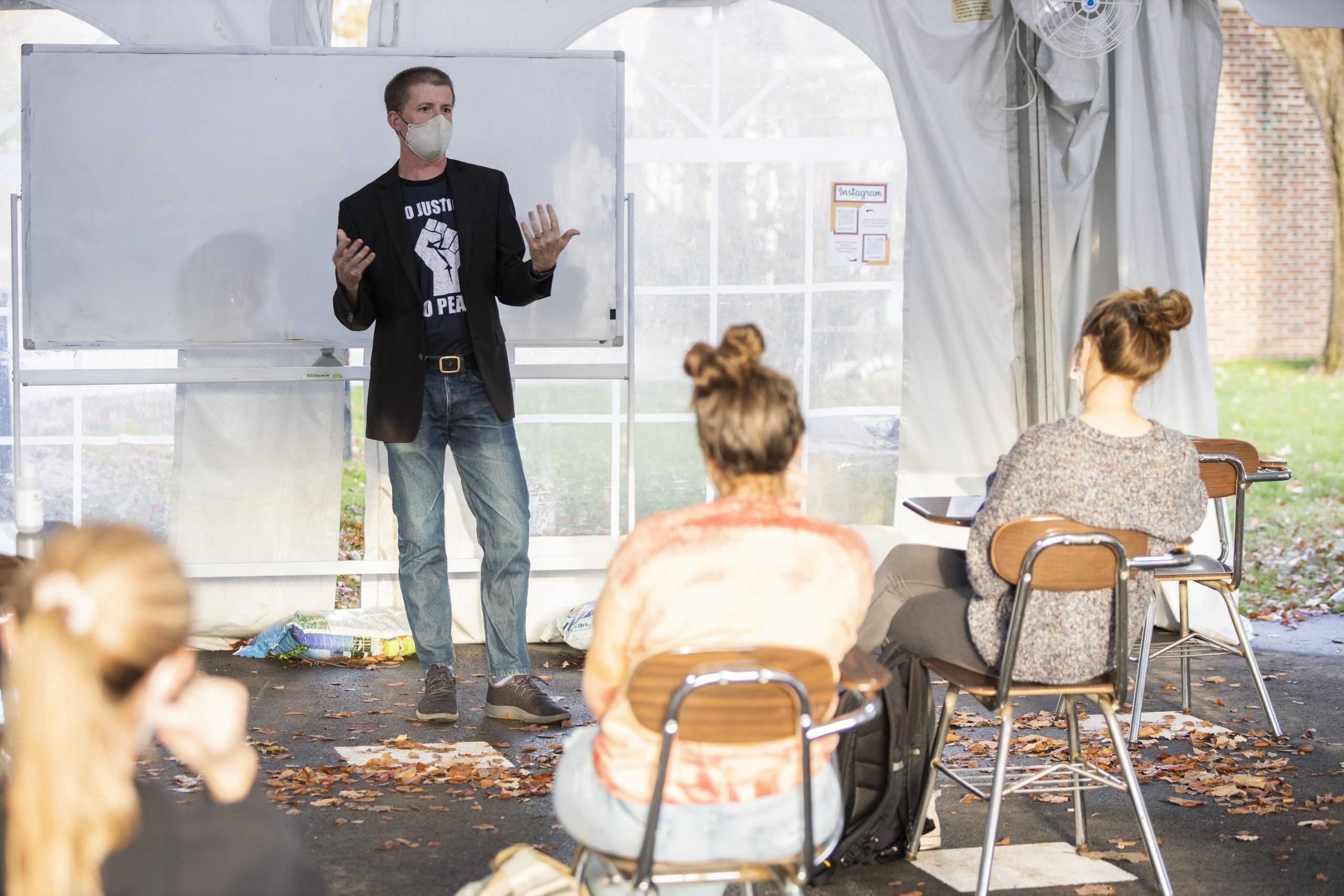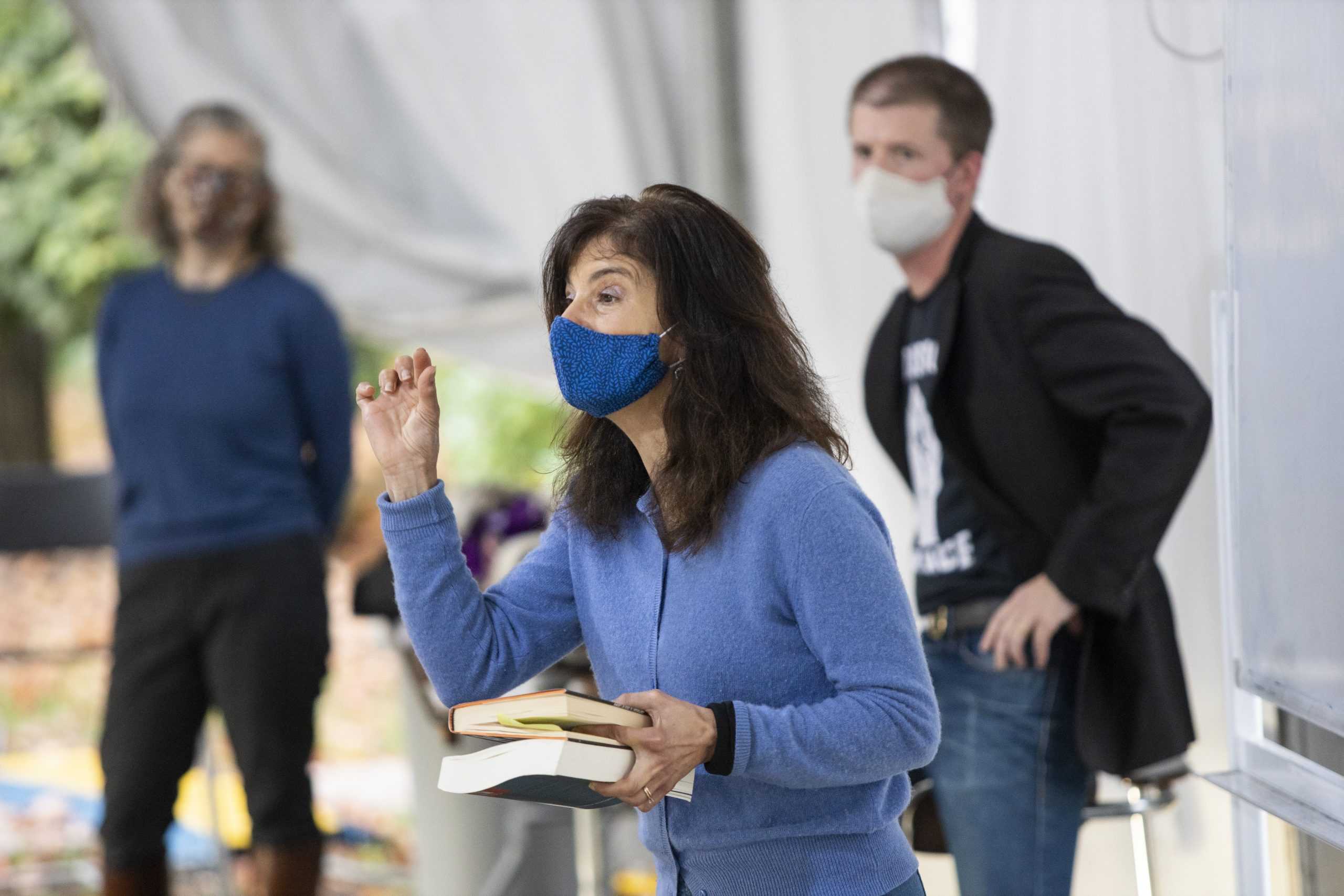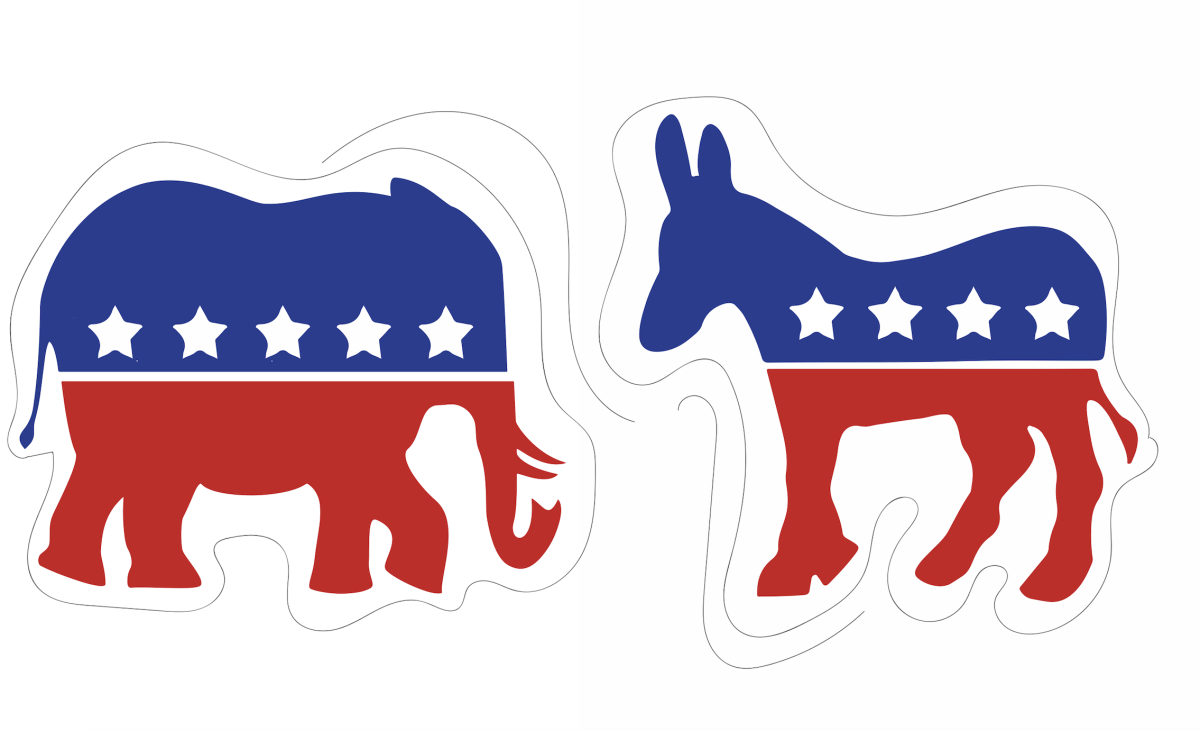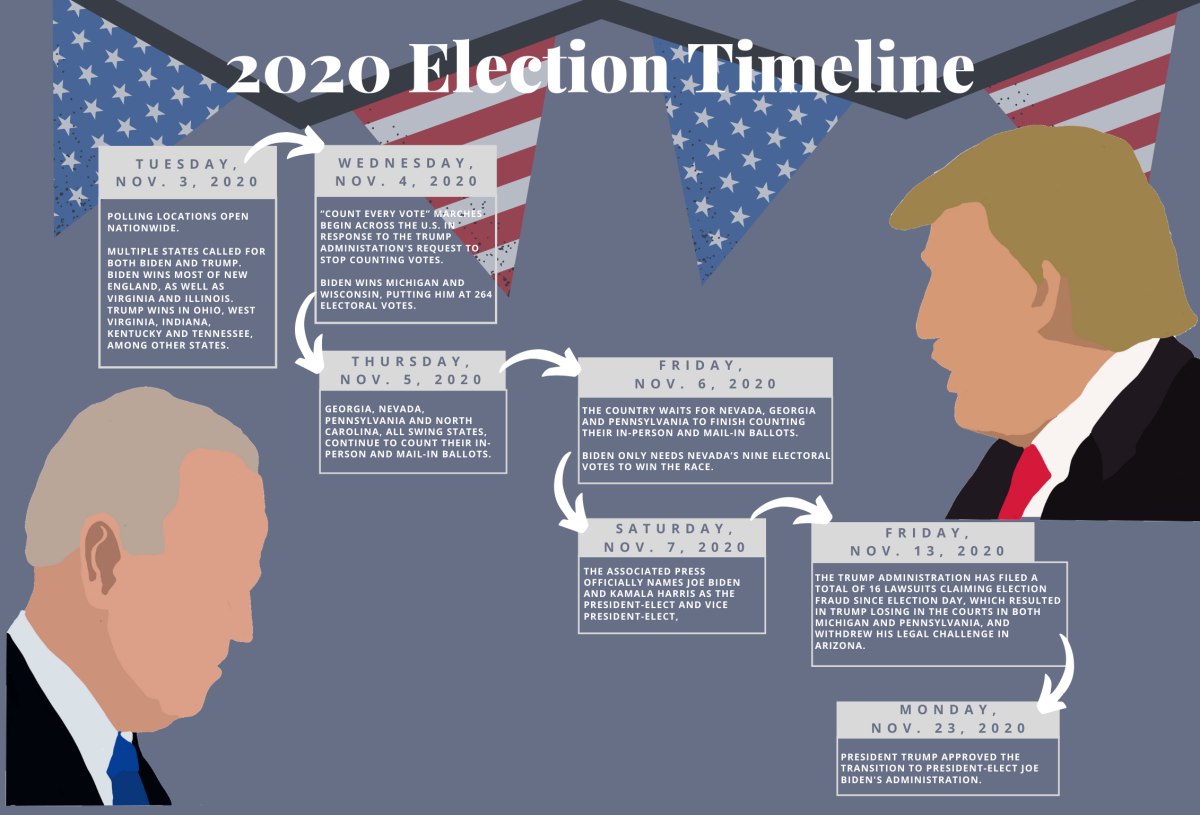Lisa Baglione, Ph.D., professor of political science, is an expert on authoritarian regimes. But Baglione said being a featured panelist was a product of unfortunate circumstances.
“I normally would not be here unless maybe to talk about American foreign policy,” Baglione told an audience of about 25 students. “It’s really sad that I am here.”
Baglione joined three other St. Joe’s professors for an Oct. 21 talk titled “Uncharted Waters?: Donald Trump and the Peaceful Transition of Power in the U.S.”
Baglione, along with Susan Liebell, Ph.D., associate professor of political science, Randall Miller, Ph.D., professor emeritus of history and David Parry, Ph.D., associate professor of communication studies, each offered perspectives on the upcoming election from their respective disciplines of political science, history and the media.
The four professors attempted to provide context for U.S. President Donald Trump’s recent comments about mistrust in this year’s electoral process and the potential that he may not accept the results of the election unless they are in his favor.
“Well, we’ll have to see what happens,” Trump said during a Sept. 24 news conference in the White House when asked if he will accept any outcome of the election. “You know that.”

of Claver Hall to have an open discussion about the election.
Miller put Trump’s comments within the historical context of American presidential transition, showcasing how they clash with established political norms which developed in the wake of the highly contentious election of 1800. That election was finally decided after the incumbent President John Adams conceded the election to Thomas Jefferson. Adams did this for the good of the democratic electoral process, Miller said.
“That transfer of power set the standard thereafter in the United States, and that’s why it’s the most important election in American history,” Miller said in his presentation.
Miller said in an interview with The Hawk that ensuring the presidential transfer of power is a peaceful one has been a hallmark of U.S. elections and democracy.
“The history of our democratic experience, in terms of accepting the legitimacy of the result so that we can actually have government, has created habits of expectation which have governed subsequent behavior,” Miller said.
Baglione explained in an interview with The Hawk how contemporary authoritarianism can rise under seemingly fair democratic elections, but in actuality, are fraudulent.
“Authoritarianism has changed in the last 30 years to include competitions via elections, but the authoritarians don’t intend for those competitions to be free and fair or uncertain,” Baglione said. “They expect them to be coronations that lead to their return to power.”

Parry said social media can have an outsized impact on popular perception of an election’s results.
“There are lots of ways in which social media is really wonderful,” Parry said in an interview with The Hawk. “But the speed of social media is not very conducive to the slow process of wanting to understand what happens on election night.”
Parry said it’s important not to follow social media exclusively on the night of the election.
“We should resist letting social media dictate the election and make sure that those people who are empowered to call the election, like the major news organizations, lead us on that,” Parry said.
Jack Mostow ’22, a political science major who attended the event, said he frequently discusses issues such as election legitimacy and transitions of power, but the panelists broadened his perspective.
“What was eye opening to me was what Dr. Parry talked about with the media,” Mostow said. “I don’t think about it enough, and it definitely plays a role in every election.”
Liebell said in an interview with The Hawk that people should be vigilant as they await the results of the election.
“Going into these next two weeks, not just students but all Americans, need to carefully say to anyone who will listen that this COVID-tinted election is a legitimate election, and that we need to not expect Election Day to produce a result,” Liebell said. “That’s something we should be embracing. We should have patience.”



















































